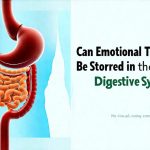Digestive issues are incredibly common, impacting millions globally, but often overlooked is the profound connection between our emotional state and gut health. We frequently focus on what we eat – eliminating gluten, reducing dairy, increasing fiber – and while dietary changes are important, they’re rarely enough for lasting recovery. This is because chronic stress, unresolved trauma, and ongoing emotional distress directly influence digestive function, creating a vicious cycle where physical symptoms exacerbate emotional suffering, and vice versa. Truly holistic healing requires addressing both the physical and emotional components of gut dysfunction, recognizing that these are inextricably linked.
Many people experiencing digestive discomfort feel shame, anxiety, or even isolation around their bodies and bodily functions. This can lead to avoidance behaviors – avoiding social situations for fear of needing a bathroom, restricting food intake due to fear of symptoms, or simply feeling disconnected from one’s own body. These behaviors further contribute to the emotional burden and hinder healing. Creating emotional safety isn’t about eliminating difficult emotions; it’s about fostering an environment where those emotions can be acknowledged, felt, and processed without judgment – both internally (within yourself) and externally (with others). This allows for a more compassionate and effective approach to digestive recovery.
The Gut-Brain Connection & Emotional Impact
The gut-brain axis is now widely recognized as a bidirectional communication system linking the gastrointestinal tract with the central nervous system. This isn’t just theoretical; it’s demonstrable physiology. Neurotransmitters, like serotonin (often called the “happy hormone”) are largely produced in the gut. The vagus nerve, a major pathway between the gut and brain, is constantly sending signals in both directions. When we experience stress or anxiety, our sympathetic nervous system – the “fight-or-flight” response – kicks in. This diverts blood flow away from digestive organs, slowing down digestion, reducing nutrient absorption, and potentially triggering symptoms like bloating, constipation, diarrhea, or abdominal pain. Conversely, chronic digestive issues can contribute to increased anxiety and depression due to inflammation, altered gut microbiome composition, and reduced neurotransmitter production.
Emotional trauma, in particular, leaves a deep imprint on the nervous system. Trauma isn’t just about big events; it encompasses any experience that overwhelms our coping mechanisms. This can include childhood adversity, relationship difficulties, or even ongoing chronic stress. When we are triggered – meaning reminded of past traumatic experiences – our bodies react as if we are currently in danger, activating the sympathetic nervous system and disrupting digestive processes. The body remembers, even if the mind doesn’t fully consciously recall the event. This explains why seemingly unrelated stressors can suddenly trigger intense digestive symptoms.
Recognizing this intricate connection is crucial for effective recovery. It shifts the focus from solely treating symptoms to addressing the underlying emotional factors that contribute to them. It’s about understanding that your gut isn’t failing you; it’s responding to your emotional state, acting as a sensitive barometer of your inner world. Emotional safety is not a luxury but a necessity for digestive healing.
Cultivating Self-Compassion
Self-compassion is arguably the most important element in creating emotional safety. Many people with chronic digestive issues are incredibly hard on themselves – blaming themselves for their symptoms, feeling ashamed of their bodies, and engaging in negative self-talk. This internal criticism only exacerbates stress and hinders healing. Self-compassion involves treating yourself with the same kindness, care, and understanding you would offer a friend struggling with similar difficulties.
- Practice mindful self-compassion exercises: Kristin Neff’s work on self-compassion provides excellent resources for learning techniques like self-compassion breaks, where you acknowledge your suffering, remind yourself that everyone struggles, and offer yourself kindness.
- Challenge negative self-talk: Pay attention to the critical voice in your head. When it arises, question its validity. Is it truly helpful? Would you say these things to a friend? Replace harsh judgments with more supportive and encouraging statements.
- Focus on what you can control: Digestive symptoms can feel incredibly disempowering. Shift your focus from what’s going wrong to what you are doing to care for yourself – even small acts of self-care count.
It’s not about ignoring the pain or pretending everything is okay; it’s about acknowledging your suffering with kindness and acceptance, recognizing that you are doing the best you can. Self-compassion creates a safe inner space where healing can begin.
Building Supportive Relationships
Emotional safety extends beyond our internal world to include our relationships with others. Sharing your struggles with trusted friends, family members, or a therapist can provide invaluable support and validation. However, it’s vital to choose wisely who you share with. Not everyone will understand or be supportive, and that’s okay. Seek out individuals who are empathetic, non-judgmental, and genuinely interested in your well-being.
A lack of social support can significantly worsen digestive symptoms and emotional distress. Conversely, feeling understood and accepted by others can buffer the effects of stress and promote healing. – Consider joining a support group for people with similar digestive conditions. Sharing experiences with others who “get it” can reduce feelings of isolation and provide practical coping strategies.
– Establish clear boundaries in your relationships. Protect yourself from individuals who are critical, dismissive, or draining.
– Communicate your needs clearly to the people you trust. Let them know how they can best support you.
It’s important to remember that seeking help is a sign of strength, not weakness. Vulnerability and connection are essential for emotional safety and digestive recovery.
Creating a Safe Physical Environment
Emotional safety isn’t solely about internal or interpersonal dynamics; it also includes the physical environment. Our surroundings can significantly impact our nervous system and overall well-being. A cluttered, chaotic, or stressful environment can trigger anxiety and exacerbate digestive symptoms. Conversely, creating a calm, peaceful, and nurturing space can promote relaxation and healing.
- Declutter your home: A minimalist approach can reduce visual stimulation and create a sense of spaciousness.
- Incorporate calming elements: Introduce natural light, plants, soft textures, and soothing colors into your living space.
- Create a dedicated self-care corner: Designate a specific area for activities that promote relaxation and well-being – reading, meditation, yoga, or simply taking time to rest.
Consider the sensory experience of your environment—sounds, smells, and textures can all impact your nervous system. Minimize exposure to harsh noises and unpleasant odors. Your physical surroundings should be a sanctuary, not a source of stress.
Ultimately, creating emotional safety for digestive recovery is an ongoing process that requires self-awareness, patience, and compassion. It’s about recognizing the profound connection between mind and body, honoring your emotions, and building supportive relationships. By prioritizing emotional well-being alongside physical health, you can unlock lasting healing and cultivate a more vibrant and fulfilling life.


















